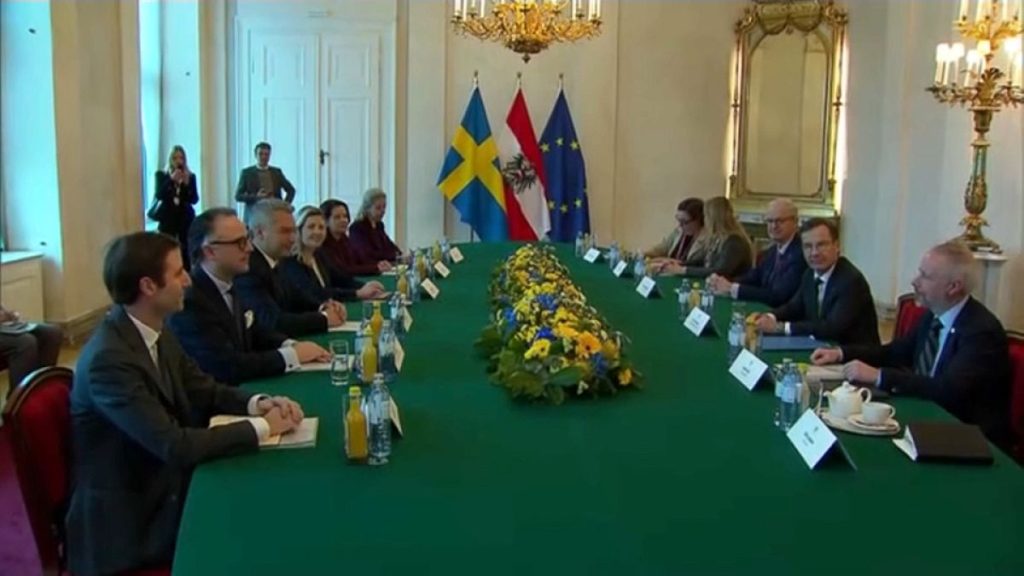Summarize this content to 2000 words in 6 paragraphs in Arabic
At a meeting to mark 30 years of EU membership, Austrian Chancellor Karl Nehammer and Swedish Prime Minister Ulf Kristersson focused on migrants.
ADVERTISEMENTAustrian Chancellor Karl Nehammer and Swedish Prime Minister Ulf Kristersson both urged the European Union to do more to tackle irregular migration on Thursday during a meeting in Vienna to mark 30 years of EU membership for their nations.The two conservative leaders said the bloc should have stronger border security and better mechanisms for returning migrants whose asylum applications are denied. Irregular migration is among the most pressing issues for the 27-member EU, having dominated the European Parliament election in June, affected election results and fuelled the rise of far-right parties across the bloc.Kristersson said on Thursday that the EU could submit a plan by the spring on the establishment of so-called “return hubs” to speed up the removal of irregular migrants, a proposal that was discussed by the bloc’s leaders in a meeting last October. At the meeting, Kristersson praised Austria for sharing Sweden’s stance on the issue.”We share the desire to think outside the box now, not to settle and say things are complicated,” he said. “These things are meant to be solved, not only discussed.”Nehammer called Sweden an “ally in the fight against illegal migration” and applauded Kristersson for ensuring the issue was at the forefront of the EU’s agenda. The meeting in Vienna came three decades ago after Austria, Sweden and Finland joined the EU — taking the number of member states to 15. The three nations were officially neutral during the Cold War, and had not formally aligned themselves in the West. Their requests to join the bloc came amid an economic downturn in the 1980s, when full EU membership allowed for equal membership in its single market. In the case of Finland and Sweden — as well as Norway which also negotiated to join the bloc — public opinion at the time was fairly Eurosceptic, with the nations seeking to vigorously defend their economic interests and the ‘Nordic model’. The accession negotiations were particularly arduous in relation to agriculture, the amount of regional aid, budgetary matters and fishing quotas. All four nations submitted their accession agreements to a popular vote. The referendum results were roughly as forecast: a clear ‘Yes’ in both Finland and Austria, a narrow ‘Yes’ in Sweden, and a ‘No’ from the Norwegians.
rewrite this title in Arabic Sweden and Austria urge the EU to get tougher on irregular migration
مقالات ذات صلة
مال واعمال
مواضيع رائجة
النشرة البريدية
اشترك للحصول على اخر الأخبار لحظة بلحظة الى بريدك الإلكتروني.
© 2025 جلوب تايم لاين. جميع الحقوق محفوظة.


